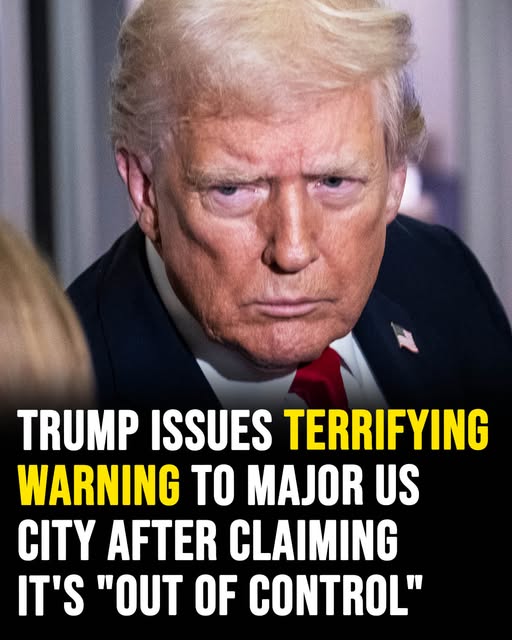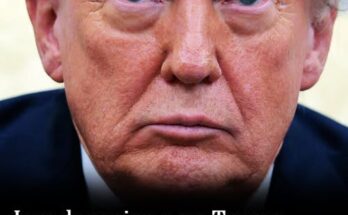During a Thanksgiving tradition at the White House, President Donald Trump shifted from light-hearted holiday moments to a serious discussion about public safety in one of the country’s largest cities. While participating in the annual turkey-pardon ceremony, the president addressed rising concerns about crime in Chicago and suggested that increased federal support may be necessary if local leaders request it.
The comments marked the continuation of an ongoing national conversation about how best to support communities facing challenges related to safety, resources, and public confidence.
Although the event began with the familiar humor and ceremony surrounding Thanksgiving, the president used part of his remarks to highlight what he described as a need for stronger intervention and coordination.
According to the president, recent incidents in Chicago underscore the importance of reviewing available tools and partnerships that could help local authorities address ongoing concerns. His comments referenced a series of troubling episodes that have drawn national attention and sparked renewed calls for solutions that balance community needs with effective prevention.
Local leaders, including Illinois Governor JB Pritzker, have emphasized that public safety decisions must align with constitutional guidelines, state authority, and community priorities. The governor expressed disagreement with the idea of federal intervention, noting that state and local officials continue working closely with law-enforcement agencies, neighborhood groups, and outreach programs to strengthen long-term strategies.
During his Thanksgiving remarks, the president pointed to earlier deployments of federal support in other cities, saying he believed those efforts helped reduce crime rates. He argued that similar support could assist Chicago if local officials chose to ask for it. The president also said he felt residents were eager for improvements and that renewed cooperation could help communities feel more secure.
“We’re ready to assist whenever state leadership believes it would be helpful,” the president said, noting that federal agencies have worked with cities across the country during challenging periods. He framed the conversation as part of a broader national commitment to ensuring that all communities can thrive.
Chicago officials, for their part, have acknowledged that public safety remains one of their top priorities. Initiatives involving youth programs, mental-health services, neighborhood partnerships, and policing reforms continue to evolve as city leaders search for long-term, sustainable solutions.
Many local residents have expressed a desire for continued investment in these efforts, hoping to see progress that strengthens both safety and trust.
The president’s remarks also included criticism of local leadership, which drew quick responses from state officials. Governor Pritzker replied to some of the comments with a brief statement, choosing to keep the discussion focused on the state’s ongoing work to address community needs.
Beyond the political back-and-forth, the underlying issue remains the same: residents want to feel secure in their neighborhoods, and leaders at every level are looking for productive ways to support that goal.
The conversation around federal involvement is part of a larger, ongoing debate about how cities can best address safety challenges while respecting local authority and community leadership.
For many Americans, especially those who have family or personal ties to Chicago, the topic is deeply important. Questions about the best path forward—whether involving additional resources, collaboration, or expanded local initiatives—continue to be discussed among policymakers and residents alike.
As the holiday season unfolds, the president’s remarks have once again highlighted the importance of constructive dialogue, thoughtful planning, and a shared commitment to community wellbeing. Regardless of differing viewpoints, the call for safer streets and stronger support systems is something people across the political spectrum can agree upon.
What remains clear is that Chicago, like many major cities, is working through a complex set of challenges. The hope from leaders and citizens alike is that continued collaboration—local, state, and federal—will help the city move toward the safer, stronger future its residents deserve.



